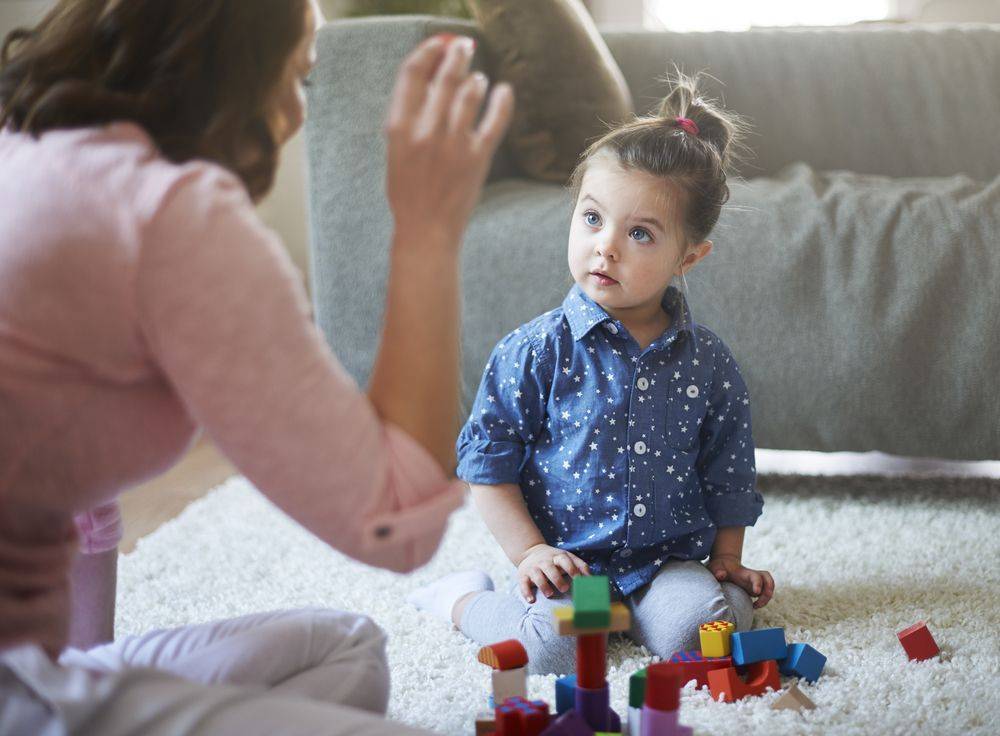Key Points:
- Babies often learn by observing and imitating the behavior of those around them, particularly their parents and caregivers.
- Children who are read too from an early age have larger vocabularies and better comprehension skills than those who are not.
- As children learn by example, parents should model positive behaviors for their children to imitate.
- It’s important to praise and reinforce positive imitative behaviors in children to encourage them to continue to imitate positive actions in the future.
Babies learn through imitation; it allows them to practice and master new skills. They observe others doing things and then copy their actions in an attempt to do them themselves.
What babies do and their behavior with people and objects usually depends on what they have seen their parents or caregivers do. For example, it’s how your baby knows, without you having to give them specific instructions, how to hold a toy phone up to their ear! They have learned by watching you talk on the phone!
Imitation can also help with the development of empathy or having the ability to experience what someone else is feeling; because by imitating, children will be learning the reactions, gestures, or actions of certain things, being able to relate that to the feelings of the person.
Albert Bandura’s social learning theory states that behavior is learned from the environment through the process of observational learning. He said most of the behaviors that people display are learned through the examples of others; and by imitation, people can learn things that they have not necessarily lived.
Tips to foster imitation skills with your child!
Although imitation is something that comes naturally for your little one, here are some things you can do with them or things you can simply look out for!
With infants
Babies are born with an innate ability to copy basic facial expressions. Remember that every interaction is a learning opportunity for your child. Make slow, repeated movements so that your little one can process the new information and try to create an environment for your child to observe and imitate sounds, gestures, and behaviors; this will increase the likelihood of imitation. Make sounds with your mouth and repeat the ones your child makes! Music is also a great way for your baby to imitate actions. Sing a song, clap your hands, play the drum, or dance around!
With toddlers
Toddlers constantly learn by doing, not just watching, so let your little one watch you complete a simple task, like putting on a shoe, and then let them try it! This is a great time to encourage your child to participate in household chores because they’ll love helping out and imitate what you do around the house! By age one, babies begin to remember and imitate actions they observed a month ago.
The greatest social skills role model
You are your child’s first teacher! Remember to always model the behavior you want to see in them. If you want them to be patient, kind, and polite, you have to be that way too! Of course, no parent is perfect all the time. So if you do or say something that you wish your child had not seen or heard, be quick to repair the damages and talk about it with your little one. Here is an article about positive parenting that might come in handy.








